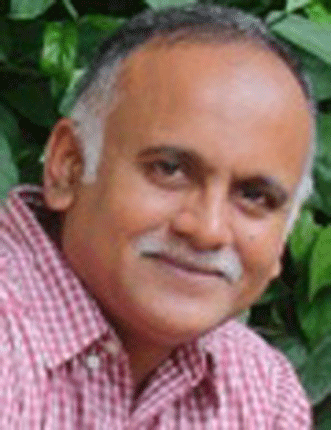ipaidabribe.com – India's front line in the war on corruption

During the three decades that TR Raghunandan worked for the civil service in India, he saw for himself the devastating, corrosive impact of corruption. When he left, he decided he was going to try and stop it.
His simple idea was to encourage people to talk about the bribes they are forced to pay, the circumstances they found themselves in that demanded the payments and the amount they were required to hand over. He also thought people should highlight those occasions when they did not have to pay a bribe and to celebrate officials who were doing an honest job.
"It's really huge. It's a big problem," Mr Raghunandan, who worked for the local government in the state of Karnataka, said of the corruption gripping his country. "The sad part is that [because of this] most are suspicious and fearful of their government and would like to keep away from it. For a country that has only been independent 60 years, that is a very sad thing."
Having teamed up with an NGO in his home city of Bangalore, Janaagraha, the result of his efforts is a website where people can upload details of bribes they have had to pay, and those they have avoided. The website, I Paid A Bribe, has already received 86,000 hits from almost 160 countries in the few weeks it has been operational. Around 1,000 have shared their stories and while it is only available in English, there are plans to allow people to use Hindi and other Indian languages.
The stories people share range from the mundane to the sinister. One posting details a train journey a man made in March 2008 to the town of Secunderabad, carrying money to pay for his mother's medical treatment. A policeman on board spotted a bottle of lemon water the man was carrying, inspected it and accused him of illegally bringing alcohol onto the train. When the man protested, two more policemen arrived.
"They took me to the public toilet, pinned me to the wall and acted as if they were going to beat me up ... One of my shirt buttons broke and a passer-by suggested to me that I pay up and get it over with. So feeling insulted in public I agreed to pay 100 rupees (£1.40). But they wouldn't budge. They wanted 3,000 rupees," the man wrote. "After a long session of haggling, they settled for 600 rupees. I paid them."
Another respondent told of how he was forced to hand over cash when flying to Canada from Mumbai. At the immigration counter an official asked him if he had a police report. The man protested that he had a visa for Canada and did not require further documentation but the official persisted. "He asked how much cash I am carrying – I say $200. The guy was like 'put it inside this envelope'. I had to leave and had no option, except putting that cash inside it."
Corruption is a massive problem in India, an everyday occurrence for almost everyone. The poor are forced to pay bribes for services they are legally entitled to, rickshaw drivers pay bribes to police (who themselves pay bribes to get a job) and contractors pay bribes to politicians and officials. An inquiry is under way into the preparations for the recent Commonwealth Games in Delhi, which were rocked by allegations of corruption and mismanagement.
Transparency International, which campaigns against corruption, compiles a report on the perceived level in different countries. In its most recent report, which listed Somalia, Burma and Afghanistan as the most corrupt, and New Zealand, Denmark and Singapore as the least, India was placed 87th out of 178 countries.
Already, I Paid A Bribe has had some success. In Bangalore, transport commissioner Bhaskar Rao asked Janaagraha to provide a list of complaints against his department. He has now issued warnings to 20 senior officers accused of partaking in bribes. "The details about rampant corruption in my department are absolutely true," he told a local newspaper.
Mr Raghunandan believes corruption can be tackled by education, by better use of technology and by people becoming aware of the correct procedures they must follow. "The problem is that most people just rant and rave about corruption," he said. "We are actually people who have ideas."
Join our commenting forum
Join thought-provoking conversations, follow other Independent readers and see their replies
Comments